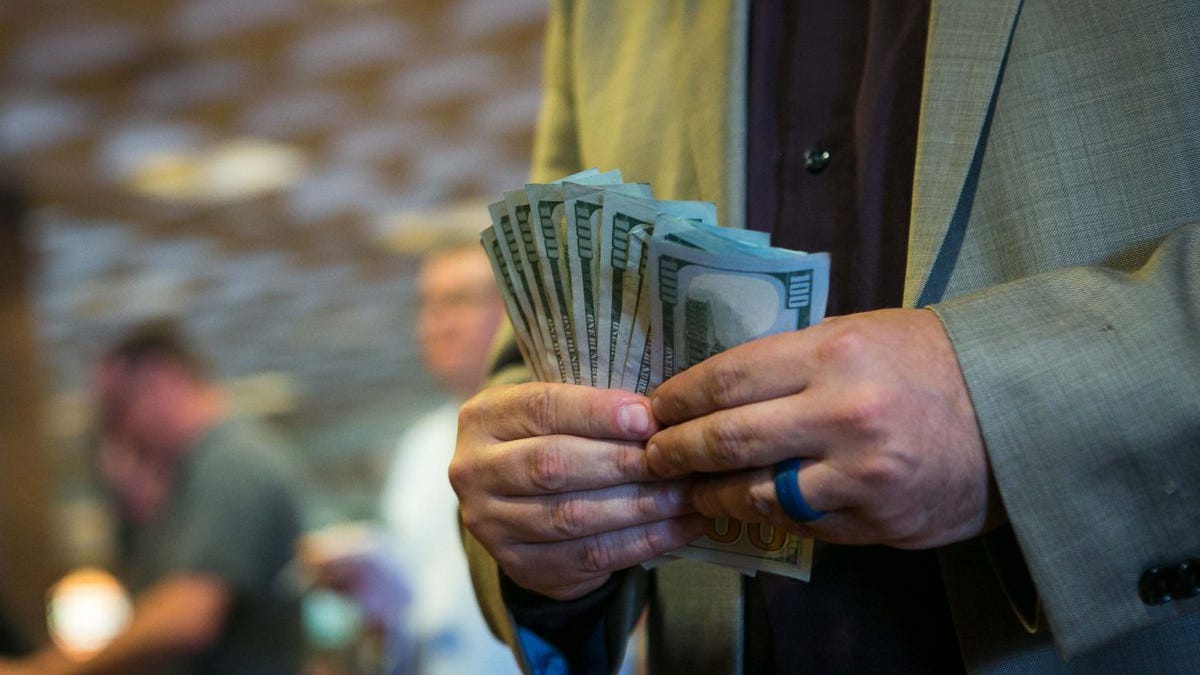Supporters of legalizing sports betting say the activity should be taken out of the shadows in Texas.
What we know now about the state of sports betting in America
Billions of dollars are wagered on sports betting in the country every year. But some states are still on the sidelines. Here is what we know.
Many of the major Texas professional sports franchises along with some political heavyweights are making another push to legalize online betting on games during the coming session of the Legislature, arguing that wagering is already happening in the state but without the regulatory framework needed to protect gamblers.
The Texas arm of a national lobby organization called the Sports Betting Alliance said more than 1 million efforts by Texans to access legal sports betting platforms in October were blocked by a geolocation service but many would-be gamblers simply find workarounds either through unauthorized betting services or by crossing into a state that allows betting.
The result, the alliance said, is that Texas is deprived of hundreds of millions of dollars in tax revenue that would come with legal betting and that players have little recourse if they fall prey to unscrupulous gaming sites. State Rep. Jeff Leach, a Plano Republican who carried a sports betting bill that stalled during the 2023 legislative session, said Texans who wish to wager should be allowed place bets legally.
“For me, it’s not really a revenue issue, it’s a freedom and liberty issue,” Leach said in an interview. “Thirty-nine states have passed some form of legalized sports betting. Our data shows that this is rampant now in the state of Texas. A million sports bets were placed per year, totaling over $2 billion. And all of it is unregulated. It’s unsafe and extremely risky for everyone involved.”
Leach’s 2023 measure, which included a proposed constitutional amendment that would have been decided by the voters, cleared the Texas House but stalled in the Senate. Gov. Greg Abbott has said sports betting is “just a form of entertainment.” However, Lt. Gov. Dan Patrick, the Republican who sets the agenda in the Senate, has been seen as a roadblock to allowing the activity.
Patrick’s office did not respond to a question about whether such a measure would advance in the chamber. State Sen. Carol Alvarado, a Democrat from Houston, has filed a proposed constitutional amendment, Senate Joint Resolution 16, that would permit sports betting as part of a sweeping measure that would allow for casino gaming in many of the state’s major cities and establish a Texas Gaming Commission to regulate operations.
“To me, it’s a real economic driver for Texas,” Alvarado said in an interview. “Texans love to gamble. Go to (casino parking lots in) Louisiana and Oklahoma and a lot of the license plates are from Texas. So we know that it’s something that Texans enjoy and spend money on. And I think we ought to take that robust passion that Texans have, and do it here and benefit our economy.”
The Sports Betting Alliance commissioned a study by the gaming research firm, Eilers & Krejcik, which projected Texas would reap about $363 million annually in tax revenues from legal sports betting. The firm also noted $2.6 billion would ripple through the state’s economy related to the activity each year.
The Sports Betting Alliance in Texas includes the Dallas Cowboys and the Houston Texans of the NFL; Major League Baseball’s Texas Rangers and Houston Astros; the Houston Rockets and San Antonio Spurs of the NBA; and Austin FC of Major League Soccer. Also on board are such betting companies as DraftKings and FanDuel, as are former Gov. Rick Perry and former Texas Secretary of State John Scott.
In the Nov. 5 elections, Missouri voters opened their state to sports betting, making it the 39th state to legalize the activity. But legalized betting is running an uphill race in Texas.
Republican State Sen. Bob Hall, R-Rockwall, said that regardless of whether Patrick softens his opposition, he will fight any gambling legislation that might reach the Senate floor. He said state-sanctioned betting comes with the risk that people who cannot control the impulse to gamble would put their financial well-being and that of their families at risk.
“I am not in favor of legalized gambling at all,” he said.
Leach, who is waiting for the Senate to act before pushing legislation of his own, said any sports betting measure must contain provisions that would set aside state money to establish public education campaigns to limit compulsive gambling. But as long as sports betting is pushed underground in Texas, people with a gambling addiction have no protection, he said.
“Understanding how widespread sports betting is, I believe the state should step in and place appropriate guardrails so that it’s done safely,” he said.

